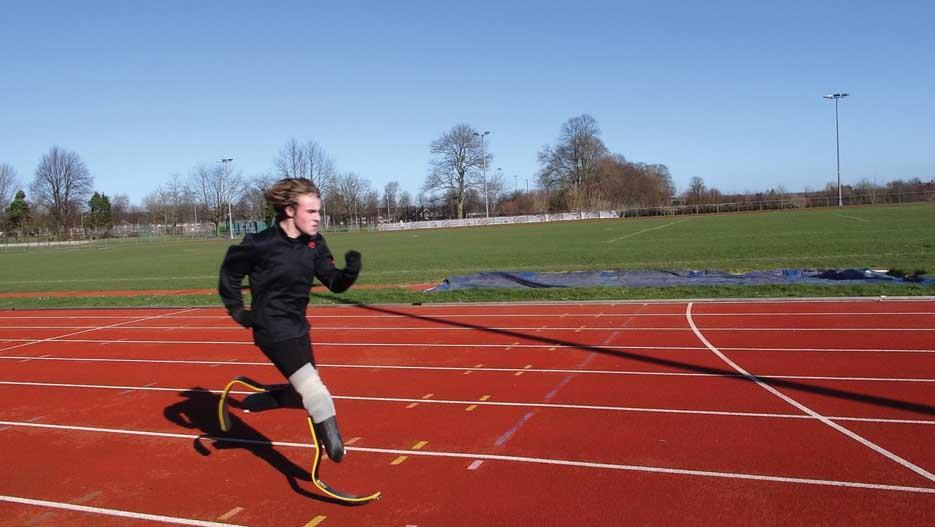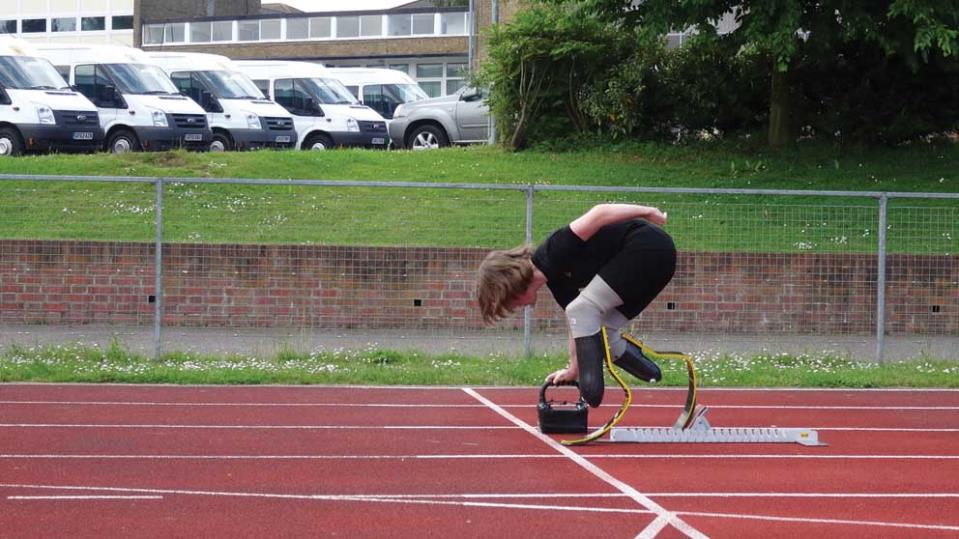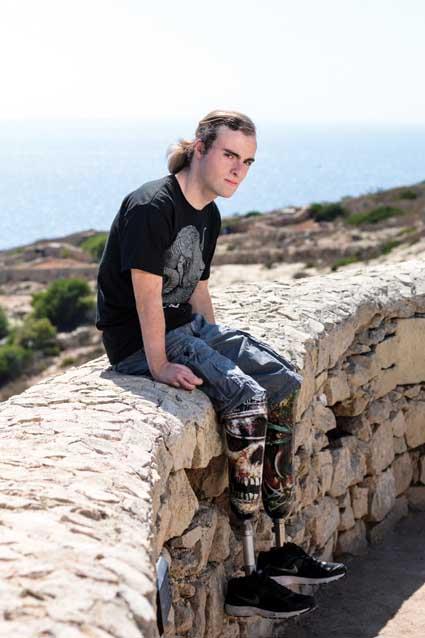Oliver Mangion was born with a condition so rare, he remains an unknown quantity. Yet, despite having had fifty operations to date, this resilient 18-year-old is proud of who is and what he has accomplished in the face of adversity. He speaks to VERONICA STIVALA.
I don't mind being disabled," says Oliver Mangion. "And if I had the opportunity I wouldn't change myself. My disability almost defines me." Oliver was born with a rare chromosome translocation with severe deformities on all four limbs. Since birth, he has been subjected to a staggering fifty operations, including toe-to-hand transfers, amputations below the knee, bone-lengthening treatment, and many operations on his arms, hands and legs to improve his dexterity. Oliver's condition is so rare that the doctors do not have a proper term or cure and complications can arise unexpectedly.

To date, there is only one other known person with a similar condition and he is from Portugal. Specialists have to work fast to find remedies for infections and internal functions problems to save Oliver's life. Their experience and knowledge in medicine saved Oliver's life as he became extremely ill and lost a kidney in the process, four years ago.
He has now recovered well and despite the endless ordeals he has dealt with, Oliver never emits an ounce of self-pity or negativity. Just in the hour that we chat, I can see that this young man has an immensely strong character, with an enviable zest for life and a passion to reach the high goals he sets for himself.I meet Oliver together with his parents, Ray and Alison, who clearly dote on their only son. They both cannot resist adding their comments as we speak, though they are never intrusive.

They make it very clear that now that Oliver is an adult, they want to let him live his life, be it to go off to study, attend music gigs or make decisions about his health. Ray and Alison live for their son, having made huge sacrifices in order to give him a better life, most notably the fact that Alison and Oliver moved to the UK to be closer to the right specialists, while Ray is based in Malta.Oliver, fair and with his blond hair tied back in a short ponytail, is wearing a black heavy metal T-shirt.
His prosthetic legs match (a skull and heavy metal design) because their cover has been made from T-shirts chosen by Oliver himself. As Oliver grows, he needs to have his prosthetics adjusted, so each time chooses a different design that has ranged from cartoons when he was younger, to different heavy metal designs and soldier camouflage as he matured.Oliver is soft-spoken, but chatty and amicable. His passions are clearly sports (of which more later) and heavy metal music. We discuss the public's changing attitude to people with disabilities.
Although Oliver is some ten years younger than I am - and we would assume in our modern world that attitudes have changed - he notes that even he has witnessed a drastic change with people being more accepting and understanding.We linger on the issue of soldiers, more specifically wounded soldiers, the awareness about whom has made disability more understood and accessible in the UK. Prince Harry recently launched a sporting championship for injured members of the armed forces called the Invictus Games. The London 2012 Paralympics also made a huge impact on changing attitudes towards disability, which successfully drove the message home that the games were about ability and not disability. Research ahead of the closing ceremony found that one in three UK adults changed their attitude towards people with impairment.Now, TV series and soap operas feature disabled actors as part of the normal cast and not specifically because they are disabled. "The perception of the public at large has changed," comments Oliver, "now people are prepared to see disabled people and don't see them as something out of the ordinary."

This means that Oliver has seen a tremendous change in the way people view disability and the way they treat him: "People still glare, stare and whisper," he says, "but now it's in a positive way. There's less pity and people are not afraid to approach me and ask about my condition." In the past, people have asked Oliver whether he had meningitis and now that he is older, ask whether he is a soldier.Thanks to the change in attitude, particularly in sport, Oliver now finds far more support with training than he did when he was younger. It is interesting to note that Oliver has found more support as a child in Malta than he did in the UK. Training at Razzett tal-Ħbiberija (now Inspire), Oliver found the facilities and trainers far superior in Malta.
"In the UK, I could feel that the coaches didn't really want me there," he confides, "they didn't want me to compete. Now it's almost completely the opposite and clubs actually want athletes to come to them."Although Oliver is no longer able to swim because he has had too much surgery, he has taken up wheelchair rugby as well as athletics for which he sprints on blades.
I ask Oliver how he copes with his disability. "The fact that I have had it all life means this is the norm for me," he comments. Disability from birth is far more uncommon in the UK than it is in Malta, the reason being that pregnancies are often aborted in the UK if the baby is found to have a disability or deformity. And so, in his typical optimistic style, Oliver admirably turns around his situation in a positive light: "Unlike someone who remembers having hands and legs, the way I am is normal for me."He admits, of course, that it still gets frustrating all the time. He is never deterred, however, and his driving force is to set goals for himself alone. "You have to have the mindset that you are doing it for yourself.
You are only competing against yourself, even if the competition is unfair. You must have a goal in mind that you want to achieve."Oliver admits that his stubbornness has got him where he is today. He reveals that he was practically bullied into quitting swimming training, but Oliver was stronger than that: "Even though they would tell me otherwise, I knew I had some sort of potential."And he definitely has. Oliver currently has his goals set on competing at the next Paralympics in Rio de Janeiro in 2016. He has his feet set firmly on the ground, however, and understands that he may need a backup. Oliver is currently studying to take his A Level Examinations in biology, chemistry, psychology and sociology with plans to read for anthropology at university.Oliver has defied sports coaches and science; he is a fighter and it is clear that he will succeed at whatever he sets his heart on doing.
Much financial help is needed to continue with Oliver's challenges, both physical and training. Without outside help from individuals, organisations and banks, Oliver will not be able to achieve his goal to become independent and succeed in achieving goals for himself. If you would like to help Oliver Mangion, you may contact his father, Ray Mangion on [email protected] or 7999 2497